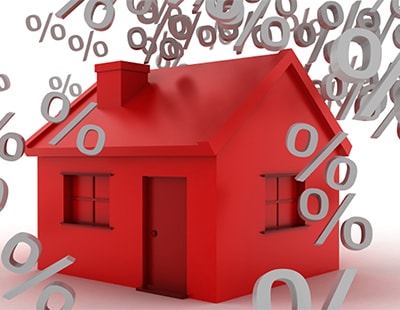
The Building Societies Association’s regular confidence tracker about the housing market shows rising pessimism over interest rates, the escalating cost of living and the Russian invasion of Ukraine.
Just 18 per cent of people think now is a good time to buy a property - the lowest since 2008.
Some 48 per cent say affordability of monthly mortgage repayments is a barrier to buying a property, a significant increase from 39 per cent just three months ago.
The BSA says many consumers are aware of general price pressure to come across the economy, with 65 per cent worried about the rising price of goods and services over the next six months.
Nearly half - 48 per cent - say they will cut energy use and will spend less on non-essentials.
“More worryingly a third of people say will be spending less on essential purchases, such as food. And of those trying to buy their first home, one in three say they will work more hours or find a new job over the next six months because their cost of living has increased” explains the BSA in a statement.
Of consumers with mortgages already, 90 per cent say they are confident they will be able to meet their regular mortgage payments over the next six months - down slightly from 92 per cent a year ago.
t’s a different story for those trying to get a foot on the housing ladder, with mortgage payments as a share of take-home pay higher now than the long-run average, despite relatively low mortgage interest rates.
Raising a deposit continues to be the biggest barrier to buying a home with 59 per cent citing this, an increase from 55 per cent in December.
Despite the significant growth in house prices in the last 12 months, 48 per cent think prices will continue to rise over the next year - although one in eight say a fall is likely by this time next year.
“The increase in the number of people citing mortgage affordability as a barrier to buying a home is likely to continue if we continue to see high demand and low supply in the housing market. Price growth at the current pace is clearly unsustainable and a much higher volume of new build and resale homes coming to market is needed to change this dynamic” explains Paul Broadhead, head of mortgage and housing policy at the BSA.
He continues: “As we all experience the impact of the rising cost of living, and watch the how the Russian invasion of Ukraine and the consequent sanctions is affecting energy prices, it’s not surprising that many are feeling worried about making their budgets stretch and considering changes they can make.
“During the pandemic overall savings balances increased by almost £300 billion so it is not surprising that some people are now planning to use this buffer to help cover their increased costs.
“The growth in savings balances was not however evenly distributed, and there are many households who struggled financially during the pandemic. The FCA’s Financial Lives Survey showed one in eight adults have no savings whatsoever and a further one in three have less than £2,000. For these families and individuals spending less on energy, food and fuel may not be enough and we hope the Chancellor will announce additional support for these households, as currently their outlook is very troubling.”













.png)


.png)




Join the conversation
Be the first to comment (please use the comment box below)
Please login to comment